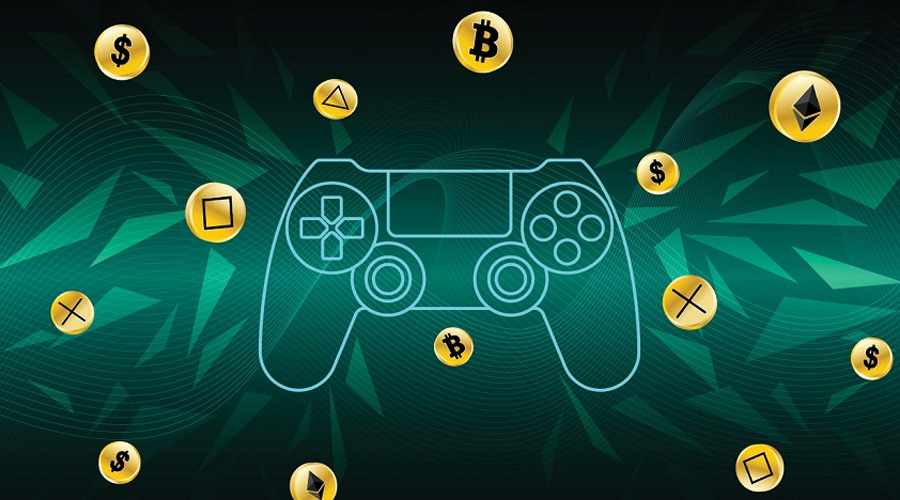
The Challenges of Blockchain Gaming: What are the Biggest Obstacles?
Blockchain technology has been a game-changer in various industries, and gaming is no exception. The integration of blockchain in gaming has opened new avenues for developers to create more transparent and secure platforms and provide unique experiences for players. However, like any emerging technology, blockchain gaming has challenges. In this article, we will discuss the biggest obstacles that blockchain gaming faces and how they can be overcome.
Introduction to Blockchain Gaming
Blockchain gaming refers to the integration of blockchain technology in video games. By incorporating blockchain, developers can create decentralized game platforms that provide players with a secure and transparent environment. With blockchain gaming, players can have full control over their in-game assets, allowing them to buy, sell, and trade them as they wish. This has led to a new gaming economy where players can earn cryptocurrencies through their gaming efforts.
The Challenges of Blockchain Gaming
-
Limited Adoption
One of the biggest challenges facing blockchain gaming is the limited adoption of blockchain technology. While blockchain is gaining traction in various industries, it is still a relatively new concept for the gaming industry. Developers and players are still not fully aware of the potential benefits of blockchain gaming. The lack of awareness and understanding has resulted in limited adoption, making it difficult for blockchain gaming to reach its full potential.
-
Scalability
Scalability is another significant challenge facing blockchain gaming. Blockchain networks can handle only a limited number of transactions per second, which is insufficient for high-traffic games. As a result, blockchain gaming platforms may experience slow transactions, lagging gameplay, and other issues. Developers need to address this challenge by finding ways to improve the scalability of blockchain networks or designing games that can work efficiently within the current blockchain limitations.
-
User Interface and Experience
Another challenge that blockchain gaming faces are providing a user-friendly interface and experience. While blockchain technology provides a secure and transparent platform for players, it can also be complicated for users who are not familiar with blockchain. Developers need to design intuitive and easy-to-use games, even for non-tech-savvy users. A poor user interface and experience can lead to reduced engagement and player retention, hindering the growth of blockchain gaming.
-
Cost
The cost of developing blockchain gaming platforms can also be a significant obstacle. Blockchain technology requires specialized skills and knowledge, which can be costly for developers to acquire. Additionally, the cost of integrating blockchain technology into existing games or creating new blockchain games can be high, making it difficult for smaller developers to enter the market. The high costs associated with blockchain gaming can limit the number of games available, hindering the industry’s growth.
-
Regulations
Regulations surrounding cryptocurrencies and blockchain technology can also challenge blockchain gaming. Different countries have different regulations, making it challenging for developers to create games that comply with all regulations. This can lead to legal issues and hinder the growth of blockchain gaming. Developers need to be aware of the regulations in different countries and design games that comply with all relevant laws and regulations.
Overcoming the Challenges of Blockchain Gaming
Despite the challenges facing blockchain gaming, there are ways to overcome them.
-
Education and Awareness
To increase adoption, developers and players need to be educated about the potential benefits of blockchain gaming. By providing more education and raising awareness, developers can help more people understand the value of blockchain gaming and increase adoption.
-
Scaling Solutions
Developers can also address scalability issues by finding ways to improve the efficiency of blockchain networks or developing games that work efficiently within current blockchain limitations. Solutions such as sharding, off-chain scaling, and layer 2 solutions can help improve blockchain gaming platforms’ scalability.
-
User Interface and Experience Design
Designers can address the user interface and experience challenges by creating intuitive and easy-to-use games accessible to everyone. By prioritizing user experience and making blockchain gaming more user-friendly, developers can attract more players and increase engagement and retention.
-
Collaboration and Partnerships
Collaboration and partnerships can help smaller developers overcome the high costs associated with blockchain gaming. Smaller developers can gain access to specialized knowledge and resources by working with larger companies, reducing the costs of developing blockchain gaming platforms.
-
Compliance with Regulations
Developers must know the regulations surrounding blockchain technology and cryptocurrencies in different countries. By designing games that comply with all relevant laws and regulations, developers can avoid legal issues and increase the growth of blockchain gaming.
Conclusion
Blockchain gaming has the potential to revolutionize the gaming industry by providing a more secure and transparent platform for players. However, it is not without its challenges. Limited adoption, scalability, user interface and experience, cost, and regulations are all significant obstacles that developers need to overcome to realize the full potential of blockchain gaming. Developers can overcome these challenges by increasing education and awareness, finding scaling solutions, prioritizing user experience, collaborating and partnering, complying with regulations and creating a thriving blockchain gaming industry.
I am a Crypto author and journalist. I have been writing about cryptocurrencies and blockchains for over 5 years. I have also been a guest on numerous podcasts and radio shows, discussing these topics. In addition, I am also a crypto advisor and consultant.


